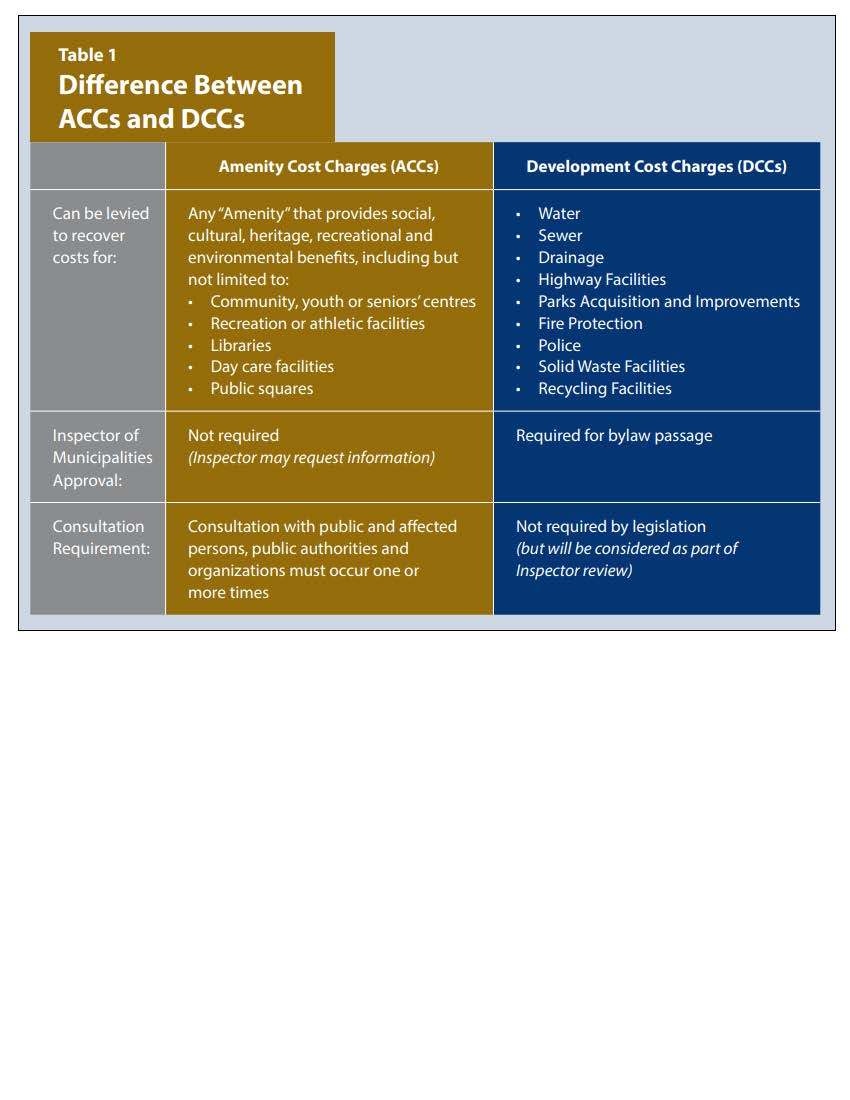September 5, 2025
ACC and DCC Tool Updates
The Province of BC has introduced a new tool called Amenity Cost Charges (ACCs), which local governments may choose to use to help fund community amenities such as recreation centres, daycares, community centres and libraries.
Local governments currently rely on Community Amenity Contributions (CACs) to help fund these costs; however, CACs were not formally legislated and were often negotiated on a project-by-project basis creating uncertainty for developers since costs are not always known upfront. The new ACC tool is designed to provide a more standardized and transparent framework for the development community.
Implementing ACCs is optional, and Municipalities may decide whether to introduce an ACC Bylaw. In Municipalities where ACCs are used, they can work alongside other planning tools such as Inclusionary Zoning and Density Bonusing.
- Inclusionary Zoning: An optional land use tool that allows local governments to require that a portion of units in new residential developments be provided at below-market rates.
- Density Bonusing: A land use tool that provides developers with the option to build to a higher density in exchange for providing new affordable housing or amenities.
Some Municipalities that have already adopted or drafted ACC bylaws are:
- City of Coquitlam (adopted)
- City of Burnaby (adopted)
- Township of Langley (in draft)
- City of Abbotsford (in draft)
- City of New Westminster (in draft)
At the same time, the Province has also updated the Development Cost Charge (DCC) framework. DCCs are charges that help fund essential infrastructure such as water, sewer, drainage and roads. Recent changes now allow DCCs to be used for police, fire protection facilities and solid waste facilities. Many Municipalities such as the City of Surrey and the City of Delta have already updated their DCC Bylaws to reflect these legislative changes.
Key Differences Between ACCs and DCCs:
- ACCs: Pay for community amenities like recreating centres, daycares and libraries.
- DCCs: Pay for infrastructure and core services like water, sewer, drainage, roads and certain protective services.
Municipalities have the ability to collect ACCs and DCCs at the Subdivision stage based on lot or unit counts or at the Building Permit stage enabling charges to be based on floorspace. For example, at the City of Coquitlam, CACs were previously collected at the rezoning stage. Coquitlam has determined that all ACCs will be collected at Building Permit stage. In contrast, the City of Burnaby stipulates that ACCs shall be paid upon approval of a Subdivision or issuance of a Building Permit, as applicable (i.e., dependant on building types such as low, medium or high rise).
The way DCCs and ACCs apply can vary depending on location, timing and project scope. In-stream applications such as rezoning and building permits are also subject to exemption provisions from new ACC and DCC bylaws. Our team can help you navigate these tools, understand potential costs, and work with Municipalities to ensure your project meets all requirements. Contact us.
